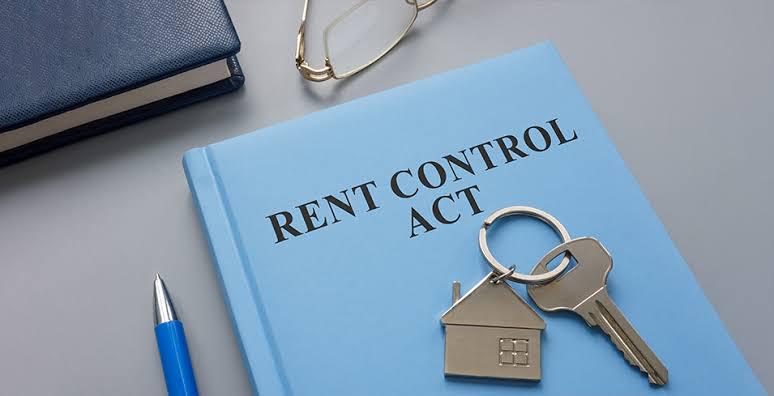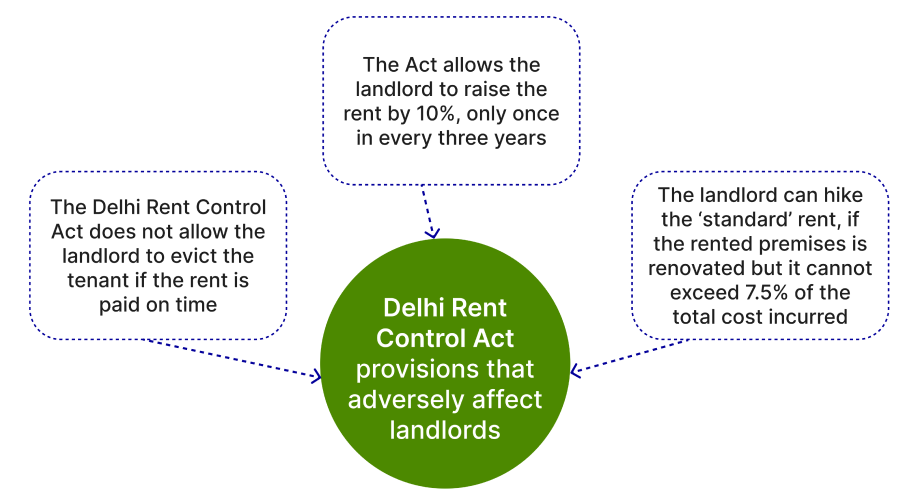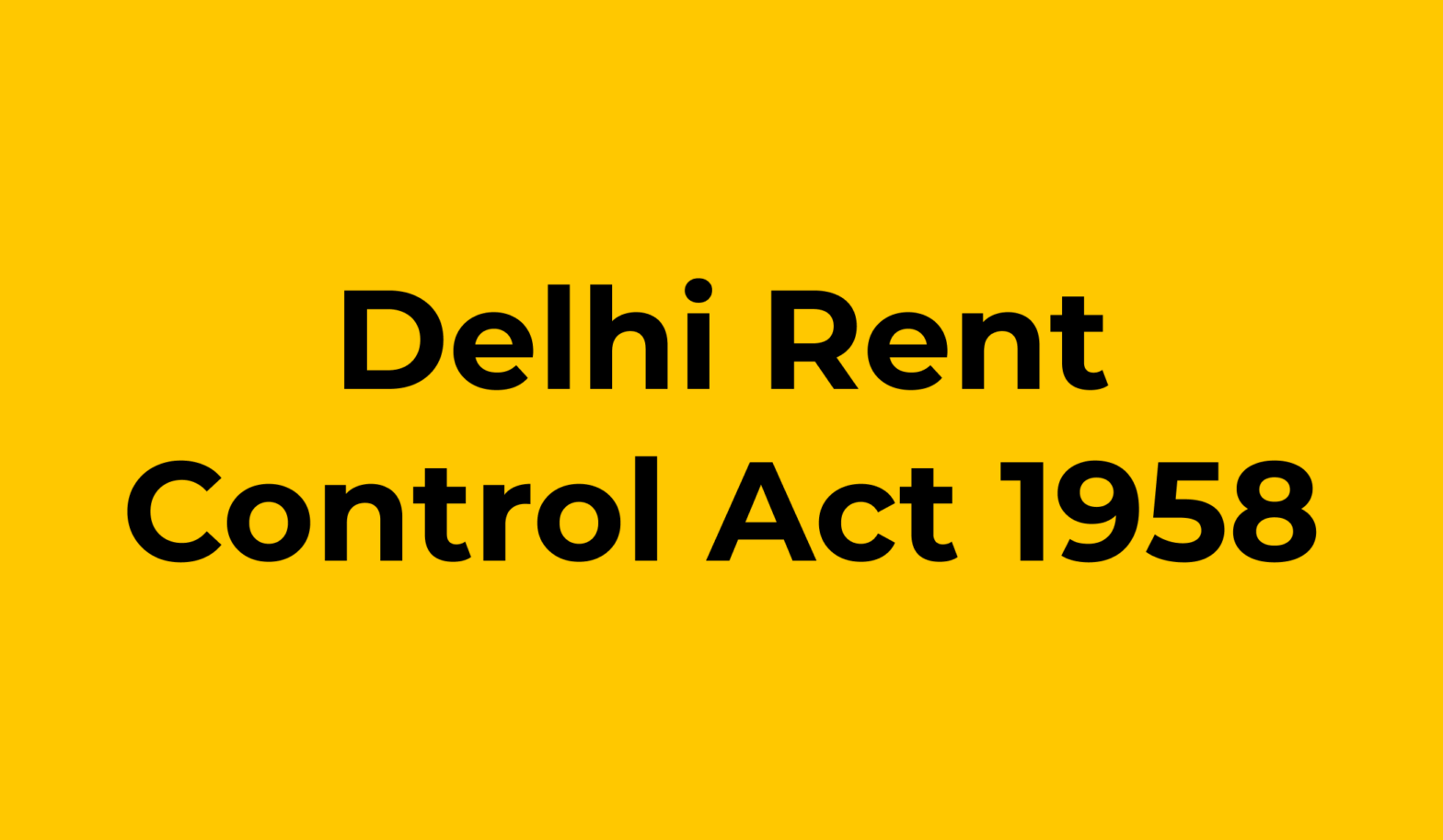INTRODUCTION
The Parliament passed the Delhi Rent Control Act on December 31, 1958. It came into force on February 9, 1959, to protect the rights of tenants . The Act is not operational on government buildings, religious areas and cantonment areas. Since 1958, the government made many amendments to the Act; first in 1988, then in 2020. Soon, the Model Tenancy Act, of 2021 will replace the Delhi Rent Control Act.

PURPOSE OF THE DELHI RENT CONTROL ACT
1.) The Delhi Rent Control Act, 1958 regulates the rents of certain premises in Delhi.
2.) To prevent the unreasonable eviction of tenants.
3.) To provide protection to tenants from arbitrary rent increases.
4.) To ensure that landlords only evict tenants with proper reason.
4.) The Act also lays down procedures for the determination of fair rents.
5.) It also suggests measures for the resolution of disputes between landlords and tenants.
MAJOR DEFINITIONS IN DELHI RENT CONTROL ACT
- CONTROLLER – means a Controller appointed by the Government. He performs several functions stated under this act.
- FAIR RATE – means the fair rate fixed under section 31 and includes
the rate as revised under section 32. - LAWFUL INCREASE – means an increase in rent permitted under the provisions of this Act.
- LANDLORD – means any person who is entitled to receive rent to let a tenant live on his property.
- TENANT – means a person who pays rent to live in a property owned by somebody else.
KEY POINTS OF DELHI RENT CONTROL ACT
- The Act allows the tenant to pay the rent by the 15th of a month if there is no written contract mentioning a date.
- The Act does not allow the landlord to evict the tenant if the rent is paid on time.
- In case of renovation, the landlord can increase the standard rent to a limit of 7.5% of the total cost incurred.
- A landlord can increase the rent only once in three years by 10% of the rent.
- The tenant should vacate the property during construction or renovation work.
- The Act’s provisions do not imply on a government building or local authority. It also does not cover religious or educational institutions.
- A landlord shall not receive or claim any payment for subletting the whole or part of the property given to a tenant.
- The successors of the deceased can take up his tenancy rights for five years. A spouse, son or daughter, parents, or daughter-in-law can be the successor if they lived as a dependent with the tenant at the time of his death.
- The tenancy is not inherited if the successor already owns a property.

RULES FOR EVICTION UNDER THE DELHI RENT CONTROL ACT
A landlord can evict a tenant under the Delhi Rent Control Act on the following grounds :
- The premise has become unfit for habitation and needs a renovation. A tenant should vacate the property if needed for renovation.
- The tenant caused substantial damage to the property.
- A tenant or his family members have not been living on the property for more than six months.
- A tenant has acquired the vacant property, which was not rented to him.
PENALTIES UNDER DELHI RENT CONTROL ACT,1958
- If a tenant contravenes the provision of inheritability of tenancy, he shall be punished with A fine of Rs 1000 or imprisonment for 3 months; or both.
- If a landlord is not able to keep the premises in good condition or repairs are not done on time or the amount recovered for maintenance is more than 7.5%, he shall be punishable with imprisonment for 6 months or a fine; or both.
- If a person is not dependent on the deceased person and still decides to stay at the premises, he shall be imprisoned for 6 months or Rs 5000 fine; or both.
- If orders of the Rent Authority are not followed then the required person shall be punishable with imprisonment for up to 3 months, a fine; or both.
MODEL TENANCY ACT, 2021
The government passed this act in June 2021. The act intends to put into practice a fair system to provide benefits to both tenants and landlords. It also offers a quick resolution for rental disputes. It proposes to form the Rent Authority Department, Rent Court and Rent Tribunal. Landlords will receive many benefits under the Act such as fixing or revising the rent. The landlord can also deduct the amount from the security deposit if he carries out some essential repairs on the premises. The act would soon replace the Delhi Rent Control Act,1958.
CONCLUSION
The Delhi Rent Control Act aims to regulate the rental market in Delhi. The Act has played a significant role in governing landlord-tenant relationships. It also helps in setting rent ceilings and providing protection for both parties.

More blogs from RentOk
Best PG manager app, Best rent collection app in India, Rent agreement format, Top 5 PG in Gurgaon, free rent agreement, online police verification, Complete Rent Agreement Format for 2023, tenant management software, Best PG manager app, Top 5 property management app



